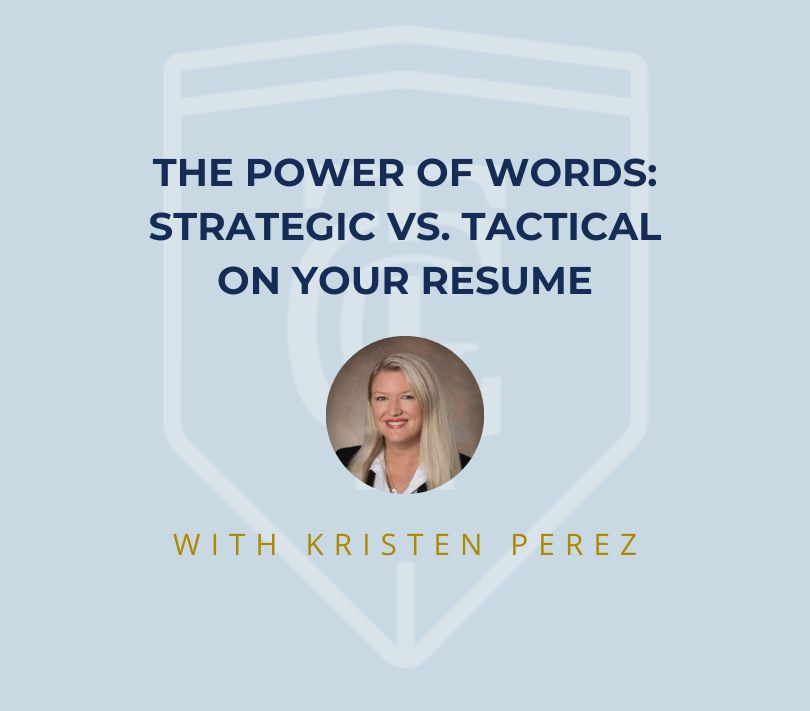
In the competitive job market, the words you choose on your resume can make all the difference in landing an interview. Understanding the distinction between strategic and tactical words will help you craft a document that showcases your potential and impact.
What are Tactical Words?
Tactical words describe the everyday activities and responsibilities of a job. They focus on the “what” – the nuts and bolts of what you did on a daily basis. Here are some examples:
- Managed
- Created
- Wrote
- Organized
- Assisted
Tactical words are necessary for establishing a baseline of your experience, but on their own, they don’t make you stand out.
What are Strategic Words?
Strategic words emphasize the broader results and outcomes of your work. They convey the “why” and “how” – the value you brought to your previous roles and the impact you had. Examples include:
- Developed
- Implemented
- Increased
- Streamlined
- Negotiated
Strategic words paint a picture of your problem-solving skills, decision-making ability, and the difference you made in an organization.
The Transformation: Tactical to Strategic
Here’s how to turn your resume from simply listing duties into a powerhouse of achievements:
- Quantify Your Success: Instead of just saying you “managed social media,” say “increased social media engagement by 30% through targeted content.” Numbers speak volumes.
- Power Verbs: Swap out bland words with action-packed verbs that convey initiative and energy. Words like “developed,” “spearheaded,” and “revamped.”
- Problem-Solving Focus: Highlight instances where you overcame challenges or made improvements. Example: “Identified and resolved inefficiencies in the order fulfillment process, reducing turnaround time by 15%.”
- Transferable Skills: Emphasize skills that are in demand – leadership, communication, adaptability. Even if they weren’t central to your job, find ways to weave them in.
Why Strategic Words Matter
Strategic words resonate with employers for several reasons:
- Results-Oriented: They demonstrate your focus on achieving goals and making a tangible difference.
- Problem-Solving: They show how you approach challenges and contribute to solutions.
- Value Proposition: They clearly articulate the value you offer to a potential employer.
A Final Note
Your resume may need both tactical and strategic elements. Tactical words provide the foundation, while strategic words elevate your experience and highlight your potential. By carefully crafting your resume with the right mix, you’ll create a powerful document that opens doors to new opportunities.
About Kristen Perez
 Kristen has over 18 years of executive recruiting experience and has worked within Human Resources in Talent Acquisition and Organizational Development roles. She joined The Christopher Group as a Recruiting Manager in 2021 and was promoted to Recruiting Director in 2022. Kristen’s focus is on filling Human Resources executive roles nationwide and she has a strong background in the Manufacturing, Logistics, Oil & Gas, Aviation, Consulting, Private Equity and Healthcare industries. To learn more about Kristen visit her bio page.
Kristen has over 18 years of executive recruiting experience and has worked within Human Resources in Talent Acquisition and Organizational Development roles. She joined The Christopher Group as a Recruiting Manager in 2021 and was promoted to Recruiting Director in 2022. Kristen’s focus is on filling Human Resources executive roles nationwide and she has a strong background in the Manufacturing, Logistics, Oil & Gas, Aviation, Consulting, Private Equity and Healthcare industries. To learn more about Kristen visit her bio page.

